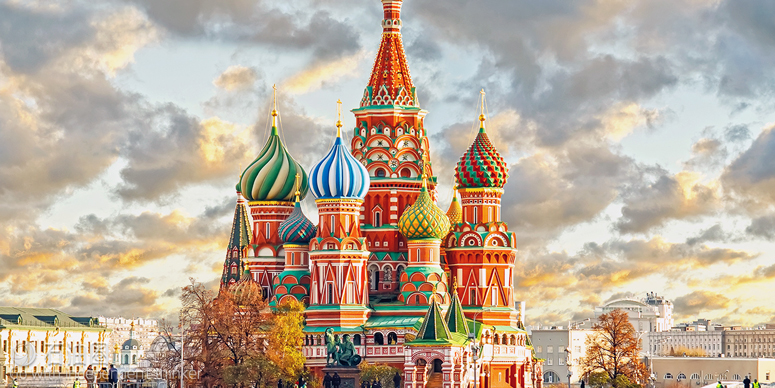Prolific oil and gas resources, an experienced workforce, economical production costs and huge potential for growth: Russia has all the qualities to support BP’s strategic shift towards natural gas and highly competitive oil production. BP Magazine talks to BP Russia president David Campbell to find out more
How significant is Russia to BP’s overall portfolio?
It is enormous. If you look at BP’s 2016 results, a third of our production comes from Russia, almost half of our reserves bookings are from Rosneft and last year a significant amount of our profit came from Russia, in what was otherwise a difficult year.
Russian oils have done quite well recently, although I think the sector is still overly discounted, but that means there is a potential to grow value. However, the fundamentals are there because the cost of finding and developing the oil is very low. Most of Russia’s production is onshore and there is a lot of infrastructure in place that we can tap into.
It’s also a huge gas player, which suits BP’s strategy. Again, these are largely onshore fields attached to existing infrastructure. Then consider where Russia sits geographically, it’s between Asia and Europe – two great gas and oil markets.
How would you characterise BP’s business in Russia?
I think of it in four parts. First of all there is the Rosneft shareholding – that is the most important part – we have two seats on the main Board of Directors and it’s up to us to demonstrate to Rosneft that we are a progressive, supportive shareholder. This shareholding gives us a unique position in Russia, quite unlike any our competitors hold.
The second job is investing in certain assets through joint ventures with Rosneft. That can help us grow a material business but also creates opportunities. Rosneft is a massive company but we can target our cooperation in certain areas. For instance, we have bought into the Taas-Yuryakh Neftegazodobycha company which operates the Srednebotuobinskoye field. That has significant growth potential and there is an ongoing capital project to grow its production from around 20,000 barrels a day up to 100,000 barrels.
We have also created an exploration joint venture, Yermak Neftegaz, which allows us to bring to bear our exploration capabilities and processes on an enormous area that is largely unexplored in the northwest and northeast of west Siberia, one of the great basins in the world.
The third part is technical collaboration where both businesses can bring in their technical experts to learn from one another.
The fourth is technology co-operation and Project Cheetah (a partnership between BP, Rosneft and Schlumberger on seismic research and development) is a good example of this. I’d like to see us doing more of this kind of co-operative work – perhaps in enhanced oil recovery.
This is your second time in Russia for BP. Has it changed much?
Yes, hugely – the business has certainly changed, particularly in the past four years. We’ve gone from being 50% owners of TNK-BP to 19.75% shareholder in Rosneft – a large, state-owned, very professional oil and gas company. Russia has changed, too. It grew steadily from about 2000 until 2014, driven largely by the oil price and it’s a much more self-confident country financially, although the past couple of years have been challenging.
BP’s shareholding in Rosneft – Russia’s state-owned oil company and the world’s largest listed oil company (based on production volume)
What is Rosneft like as a company?
It is very large and because of its position in Russia it has a great deal of opportunity. It is an ambitious, well-run company with growth plans. In the past four years the company has changed and grown. For instance, it has just bought into the same Zohr field in Egypt that we have. It also bought Bashneft, which is a 400,000-barrel-a-day company in its own right. We now own almost 20% of that company.
Where might BP and Rosneft work well in in the future?
Gas is not a heritage business for Rosneft but it has ambitious growth plans, including its first liquefied natural gas (LNG) plant. BP has some of the most competitive LNG plants in the world, so I would love to be a partner in developing some of that. I think we have a lot of complementary skills and ambitions. Another obvious area is mature fields. I personally have worked in some of BP’s most mature assets – Prudhoe Bay in Alaska and Rumaila in Iraq, for instance, both big, mature, water-flooded fields. I don’t think any other company has our experience in managing water flooding and no country has as many water-flooded reservoirs as Russia.
Our aim is to build a business in which BP has quotable, material production that is separate from the production that comes through our stake in Rosneft. I’d be looking for around 200,000 barrels a day. To do that, we need some bigger plans and we need to make some more investments. I would like Rosneft to see us as a partner of choice in certain areas where I think we can add value. As well as low-cost oil and the gas potential, I would like to do more in the Downstream, or perhaps venturing.
What are the challenges of working in Russia?
Of course, we have the legal situation regarding the international sanctions on Russia, which we take very seriously. Our work is compliant. BP is used to operating within sanction regimes and it’s something we carefully consider at all times.
There are obvious geographical challenges: it’s a vast country which means that logistics are an issue, and then there are specific environmental conditions, such as permafrost.
But we work with these conditions in other regions, too, and Rosneft has a great deal of experience.
What are your milestones over the next nine to 12 months?
First of all silent running – supporting the board and continuing to do quality work in the technical areas. Taas-Yuryakh, the 100,000 barrels a day plant, ought to be ready to start increasing production next year and we should be looking at a material increase in production. The pipeline is already welded and has been pressure-tested.
Our Yermak JV is drilling its first well on the Baikalovskoe discovery. This is an important well with appraisal elements, but also exploration elements that might make quite a difference. Then we want to do more business development, so I hope to be talking about further agreements later on.


 石油圈
石油圈
